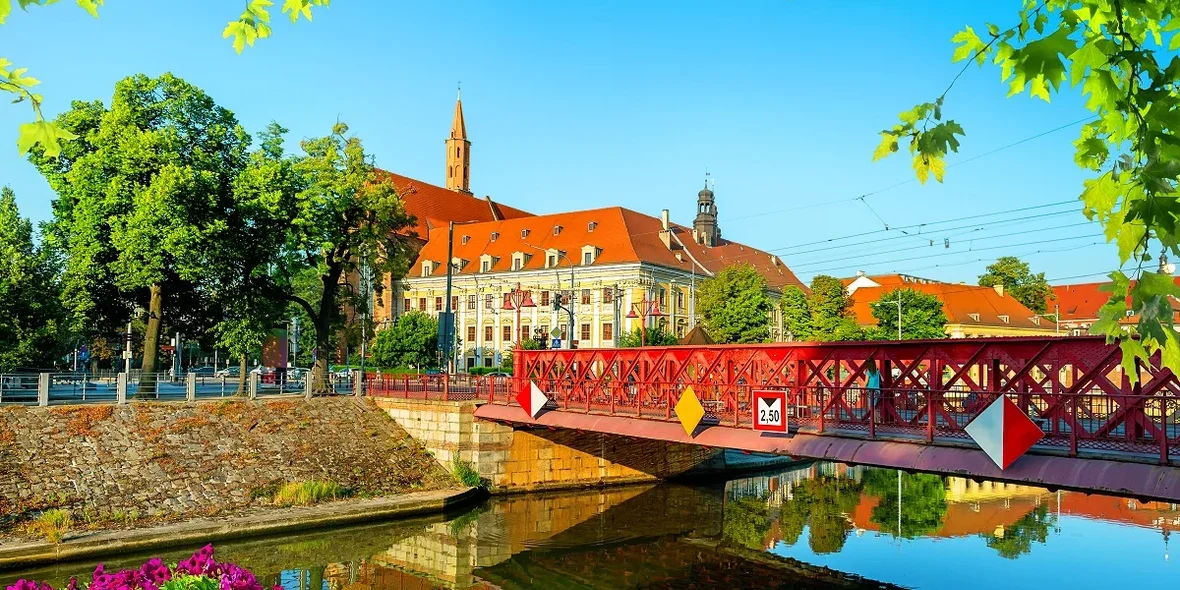
Job Search in Poland. A Detailed Guide to Vacancies, Salaries, and Getting a Work Permit Visa
Poland attracts a large number of labor migrants — in 2024 alone, their number exceeded 1.6 million. Local employers actively support this trend, making careers in Poland with accommodation a common feature of the local labor market.
The chances of finding a suitable position on the Polish labor market are quite high. In major cities, the unemployment rate is only 3%. However, in more remote areas such as the Carpathian region, it reaches 9%.
In this article, we will thoroughly examine the nuances of employment in Poland, salary levels in the local labor market, and how a foreigner can integrate into it.
Key Requirements for Employment
Not only can EU citizens get a job in Poland, but non-EU nationals can as well. In 2024, over 1.1 million work permits were issued to third-country nationals. However, legal employment requires either a visa or a work permit — the visa-free regime (90 days in the Schengen Zone) does not qualify for work.
The first and foremost requirement is a valid document granting the right to stay in the country. This could be a foreign passport with a Polish national visa type D (the national Polish work visa) or a residence permit card (karta pobytu), which allows work without additional permits in the case of long-term stay.
Types of Invitations for a Poland work permit visa:
- Oświadczenie o powierzeniu wykonywania pracy (declaration of intent to employ a foreigner). A simplified procedure is available to citizens of Ukraine, Belarus, Russia, Moldova, Georgia, and Armenia. It allows employment for up to 24 months without the need for a full work permit. In 2023, more than 700,000 such declarations were issued.
- Zezwolenie na pracę (work permit). Required for more complex cases (e.g., long-term employment or for citizens of other countries). There are types A, B, C, D, E, and S (seasonal work in sectors like agriculture). The validity period is up to 3 years with the possibility of extension.
No permits are needed for EU/EEA and Swiss citizens, holders of the Karta Polaka, refugees, spouses of Polish citizens, or full-time students at Polish universities.
Knowledge of Polish is not mandatory for many job openings. In 2024, around 60% of job offers in Poland for foreigners (e.g., in warehouses, factories, construction, or agriculture) did not require local language skills.
Jobs available in Poland without language proficiency include:
- Packers
- Harvesters
- Production line workers
However, basic Polish knowledge (A1—A2) is highly recommended. It significantly increases the chances of landing a higher-paying job, especially in service, IT, or healthcare sectors and raises your basic salary in Poland.
Required Documents for Obtaining a Work Visa to Poland
Working in Poland as a foreigner requires obtaining a job offer from a local employer. The employer is responsible for submitting an application to the local labor office (Urząd Pracy) to hire a foreign worker. Once approved, the employer signs a contract with the prospective employee, which serves as the basis for the visa application.
Additional documents for a work permit in Poland:
- Passport. Must be valid for at least 3 months after the intended end of the visa period and contain at least two blank pages.
- Visa application form. Completed online or at a visa application center. You must indicate the purpose of travel (employment) and provide details of the employer.
- Medical insurance. Must cover the entire period of stay. The minimum required coverage is €30,000.
- Photographs. 2–4 color photos, size 3.5×4.5 cm, taken within the last 6 months.
- Consular fee. The standard fee for a D-type national visa in Poland is €80. Additional service fees at visa centers (e.g., VFS Global) may range from €15 to €30.
Documents must be submitted to the Polish consulate or a visa center in your home country. The processing time is typically between 10 and 60 days. To expedite the process, it is advisable to use a reliable employment agency in Poland, which can assist with the job invitation and application form.
Required documents to start working after entering Poland:
- Employment contract. The main document regulating the employment relationship. There are three main types of contracts in Poland:
- Umowa o pracę — standard employment contract with full social benefits.
- Umowa zlecenia — civil law contract, less formal.
- Umowa o dzieło — contract for specific tasks or deliverables.
As of 2025, all foreign workers are required to sign one of these contracts (source: Polish Ministry of Labor).
- Qualification documents. Diplomas, certificates, or licenses are required for certain regulated professions (e.g., doctors, engineers, drivers). For low-skilled jobs such as factory or agricultural work, these documents are generally not needed.
All foreigners employed in Poland must have medical insurance. To obtain a work visa, private insurance with a minimum coverage of €30,000 is required (cost: €20—50). After employment begins, the employer registers the worker with the Social Insurance Institution (ZUS).
For long-term stay or residence permit (karta pobytu), you need to obtain an 11-digit PESEL number. It is issued by the local municipal office (urząd gminy) based on an application, passport, and proof of address (e.g., lease agreement or employer’s confirmation). The PESEL is necessary for tax returns and legal residence procedures. For short-term or seasonal jobs, a NIP (tax identification number) can be used instead.
Step-by-Step Employment Process in Poland
The first step in the Poland work permit process is to find a suitable job vacancy. The majority of positions for foreigners are concentrated in construction, manufacturing, logistics, and agriculture. Popular resources for job search in Poland include:
- Websites. pracuj.pl, olx.pl, jobian.com, and the central job database on gov.pl.
- Social networks and groups. Specialized groups in social media.
- Employment agencies. Licensed agencies such as EWL Group and Work Service assist with job placement, accommodation, and document processing.
Next, the employer must arrange a work permit, and based on the invitation, the employee must apply for a Poland visa for work (national visa type D, categories D05, D05a, or D06).
After entering Poland, the following steps are required:
- Notify about the start of employment. The employer must notify the local Labor Office (Urząd Pracy) within 7–14 days of the employee’s first working day (applies to the Oświadczenie procedure).
- Register with ZUS. Mandatory social and health insurance which must be arranged by the employer.
- Apply for a residence permit (Karta Pobytu). if planning to work longer than 3 months. The application is submitted to the regional governor’s office (Urząd Wojewódzki).
Where and how can a foreigner look for a job in Poland?
There are a number of resources to assist foreigners in finding a job in Poland. One of them is the Ministry of Family and Social Policy. The website provides information on looking for a job in Poland, obtaining a work permit, and other issues.
For example, on its website, you can find a complete list of local recruitment agencies that offer employment services for foreigners. Among them are Randstad, EWL, InterKadra, OTTO Polska, Pollux, POLAND WORKFORCE, Transline Group, and Work Service S.A.
Another resource is the Polish Employment Service.
It is also possible to study at one of the Polish police schools in a particular specialty with subsequent employment in Poland.
Foreigners can also find career opportunities in Poland by accessing popular online job sites. These include:
- Pracuj.pl
- GoldenLine.pl
- NoFluffJobs.pl
- Jobs.pl
- Jooble.pl
- e-Delo.pl
- Razem.Work
Important. You can check the data about a particular employer in the register of the Central Statistical Office of Poland (GUS).
Jobs in Poland that are popular among foreigners
The following are the most popular jobs for foreigners in Poland in 2025:
- Software Engineer
- Data processing specialist
- IT support specialist
- Accountant
- Financial analyst
- Customer Service Representative
- Sales Representative
- Marketing Manager
- Project Manager
- Educator
- Nurse
- Doctor
Among the working professions next Poland job opportunities are in demand:
- Welders
- Electricians
- Builders
- Truck drivers
- Warehouse workers
- CNC machine operators
Jobs with Polish language requirements include teachers, nurses, and doctors. However, working in Poland without knowing the language is also possible if you are interested in jobs such as, for example, a welder, an electrician, a construction worker, a truck driver, or a warehouse worker.
Salary Levels in Poland
The minimum salary in Poland in 2025 is 4300 PLN gross (approximately 1000 EUR or 1075 USD), which is 6% higher than in 2024 (according to GUS data). After taxes (net), this amounts to approximately 3300–3500 PLN.
Minimum and average wage in Poland
|
Type of Salary |
PLN (gross) |
PLN (net) |
EUR (net) |
USD (net) |
|
Minimum wage |
4300 |
3300–3500 |
770–815 |
825–875 |
|
Average wage |
5800 |
4200–4500 |
975–1050 |
1050–1125 |
Sample salaries by employment opportunities in Poland:
|
Profession |
PLN (net) |
EUR (net) |
USD (net) |
|
Factory work (packaging, assembly) |
3000–4500 |
700–1050 |
750–1125 |
|
Construction worker (Warsaw) |
3500–5000 |
800–1200 |
875–1250 |
|
Elder care/food service |
3000–4500 |
700–1050 |
750–1125 |
|
Seasonal farm work (harvesting) |
2500–3500 |
580–815 |
625–875 |
|
IT specialist |
7800+ |
1800+ |
1950+ |
Equal rights for foreign workers under polish law:
- Working hours. The standard schedule is 8–9 hours per day, 5–6 days per week. For low-skilled jobs such as factory work, shifts of 10–12 hours are common.
- Overtime pay. Poland’s salary per month may increase through overtime work. It is paid at 150% of the regular rate on weekdays and 200% on weekends or public holidays (according to the Polish Labor Code).
- Social benefits. Upon signing an umowa o pracę (employment contract), workers receive paid vacation (20–26 days per year), sick leave, and health insurance through ZUS. In 2024, about 90% of foreign workers were registered with ZUS (data from the Polish ZUS).
Additional benefits may include meals (e.g., in factories or food service) and transportation to the workplace, which is especially common in seasonal jobs in Poland.
Taxes in Poland
Poland’s taxation system typically withholds about 20% of an average salary. However, this figure may vary, both downward and upward, because income tax is calculated using a progressive scale.
The base personal income tax in Poland (PIT) rate is 17% for annual income up to 120,000 PLN and 32% for income exceeding this threshold. In addition to PIT, contributions to social and health insurance (ZUS) are also deducted from gross income, amounting to approximately 13–15%.
Taxes in Poland for foreigners become mandatory upon acquiring tax residency. This status is automatically granted to individuals who spend at least 183 days in Poland within a calendar year. However, if there is a double taxation treaty between Poland and the foreigner’s home country, the effective tax rate may be reduced.
Foreigners are also eligible for a refund of income tax in Poland. To claim a refund, one must submit a tax declaration (PIT-37) by April 30 of the following year, provided they are entitled to tax reliefs or have overpaid. In 2024, the average refund amount ranged from 500 to 1,000 PLN per person.
Poland income tax for foreigners and residents breakdown:
|
Deduction Type |
Amount (PLN) |
Percentage of Gross Salary |
|
Income Tax (PIT) |
400–600 |
9–14% |
|
ZUS Contributions |
550–650 |
13–15% |
|
Total Deductions |
950–1250 |
22–29% |
|
Net Salary |
3300–3500 |
71–78% |
What is the Best City in Poland to Work in?
The best cities in Poland to work in depend on your specialization and personal preferences. However, some of the most popular and sought-after cities include:
- The capital of Poland, Warsaw. This city is a major economic and cultural center. Among other things, Warsaw has a strong startup scene and is a popular destination for foreign professionals due to Poland’s highest monthly salary.
- Wrocław is a dynamic and cosmopolitan city with a rich history and culture. It is a major center of information technology, business, and education. Wrocław is also known for its high quality of life and affordable cost of living.
- Kraków is one of Poland’s most popular tourist destinations, but it is also a great place to work. The city has a thriving labor market, especially in information technology and services. Kraków is also a major cultural and scientific center.
- Poznań is a rapidly developing city with a strong economy. It is a major center of business, manufacturing, and logistics. Poznan is also a popular destination for students and young professionals.
- Gdańsk is a port city with a rich history. It is a major center for trade, shipping, and logistics. Gdańsk is also a popular tourist center and has a growing information technology sector.
Long-term rental offers in Poland
Other work-friendly cities in Poland include:
- Katowice, a major industrial city that has evolved into a modern business and cultural center.
- Łódź, a former textile center that is now a major center for business, information technology, and education.
- Lublin is a historic city in eastern Poland with a growing economy and a strong labor market.
- Szczecin is a port city in northwestern Poland with a growing IT sector and a number of international companies.
Frequently Asked Questions About Employment in Poland
What are the features of income tax in Poland for foreigners?
Taxes in Poland for individuals include personal income tax (PIT) and contributions to ZUS (social and health insurance). Work in Poland for foreigners under an umowa o pracę (employment contract) or umowa zlecenia (contract of mandate) is subject to the applicable PIT rates:
- 17% for annual income up to 120,000 PLN.
- 32% for income exceeding that threshold.
ZUS taxes in Poland contributions amount to approximately 13–15% of the gross salary. For instance, from a minimum gross wage of 4300 PLN, deductions typically range from 950 to 1250 PLN, and the net (take-home) pay is around 3300–3500 PLN (according to GUS data).
If you work in Poland for less than 183 days per year, taxation is regulated by double taxation avoidance agreements between Poland and your country of residence. You can also submit a PIT-37 tax return by April 30 to reclaim overpaid PIT. Average refunds range from 500 to 1000 PLN.
Is it worth finding a job in Poland through a recruitment agency?
In 2023, about 30% of foreigners found employment with the help of the top recruitment agency in Poland for foreigners (Avomind, Randstad Poland, Hays Poland). The main advantage is assistance with processing the work invitation and work visa. For example, factory and warehouse positions often do not require Polish language skills. Agencies offer inclusive support and can help find work in Poland for English speakers.
Can I find a job in Poland without knowing the Polish language?
Many jobs for foreigners do not require Polish, especially unskilled jobs in Poland (Seasonal work in the agricultural sector). In 2024, around 60% of job offers for foreigners (e.g., in warehouses, factories, construction, or agriculture) did not require language proficiency.
Common positions include packers, seasonal harvest workers, and production line workers, often with instructions available in Russian or Ukrainian. For example, at LG or Volkswagen plants in Poland, the average income in Poland ranges from 3000 to 4500 PLN (approx. 700–1050 EUR).
However, basic Polish (A1–A2 level) significantly improves access to better-paying jobs — e.g., in hospitality or IT, where starting salaries are around 7800 PLN net (approx. 1800 EUR).
How to apply for a Polish job visa?
To obtain a Polish work visa, you must first secure a job offer. If a Polish employer agrees to hire you, they submit a request to the labor office. Upon approval, you receive a work invitation (Oświadczenie or Zezwolenie na pracę), which is the basis for visa issuance.
Poland work permit requirements:
- Valid passport (valid for at least 3 months beyond the visa's expiration).
- Visa application form.
- Insurance policy with a minimum coverage of 30,000 EUR.
- Photographs (3.5 × 4.5 cm).
These documents are submitted to a Polish consulate or visa center, along with payment of the consular fee (80 EUR) and visa center service fee (15–30 EUR).
The review process for a Poland employment visa can take up to two months. A standard work permit is issued for up to 3 years and is renewable. A seasonal work permit is issued for up to 9 months within a calendar year.
Author
I write informative articles about real estate, investments, job opportunities, taxes, etc.



























